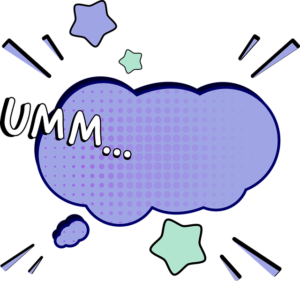Comic Book Logic

Comic book logic. Fantasy logic. Science fiction logic. The terms sound paradoxical. Even the last, Science fiction, requires a sub-genre of hard science fiction to tell its audience the author is striving for scientifically sound stories.
The terms are used in defense of stories that attract criticism for a plot-bending element. How does the flesh beneath the superhero armor survive extreme trauma? Oh, that’s comic book logic. How does a person survive a laser sword through the abdomen? Haha. That’s science fiction logic. Why are you making such a big deal? Wasn’t that flashy, loud, violent scene overwhelming enough to turn off your brain?
Therein lies the problem with the various genre logic defenses. They ask the audience to turn off their reasoning minds enough to make the content passable. They ask the audience to lower their standards, to accept subpar content, for something that doesn’t need to exist but does because the content creators refuse to create within limits.
The retort would be, don’t the various genres allow for the easement of logic?
No. Not for me. OK. Just a little. But, still, no. Confusing? So is the content created in these genres that throw logic to the wind.
Every genre author has inevitably dealt with worldbuilding. Cultures, religions, governments, languages, history, foods, magic and so much more are created to serve the story. When you take a step back and look at what these aspects of worldbuilding, well, build, it’s a system of logic applied to the story. They’re boundaries, and rules that exist to inhibit the story. They’re friction points and obstacles. And, once established, tell the viewer the parameters of the story. Anything else left unaddressed is defaulted to our understanding of our world. And our understanding is steeped in logic that is too ingrained in our minds to be set aside.
I’ll take the example of a human hero in a suit made of the latest unbreakable nanotech material. He’s fighting some titan from a distant galaxy. This titan has the strength to pulverize solid rock or to throw said rock miles away. Now, this titan delivers a solid punch to the armored superhero. We see this hero fly, smash into and through concrete pillars, skip across the ground until friction finally slows him down.
What happened to the superhero?
Maybe a damaged helmet and a little dizziness a quick shake of the head can dispel. The momentum of his brain smashing into his skull? The sudden shift of blood away from his head? The unbreakable nanotech armor smashing into the fragile bone it’s protecting? Physics be damned. Comic book logic.
Why make a big deal about this? Why not just focus on the characters instead?
Stories are about characters experiencing change and conflict and what becomes of them at the end. Change and conflict. If we remove conflict, we remove opportunities for change. If we allow comic book (or any genre) logic to override practical logic, we allow the content creators too many chances to use hand waveium, resulting in a cheaper imitation of the story that could have been told. One less mentally and emotionally stimulating. One when the flashing wowness fades and the components of story is left to hold itself together. If too many components are weak, the story breaks.
The annoying truth is that most of these genre logic excuses can be ignored. Sure, it calls for more thoughtful writing, maybe a little more time, but the genres that we enjoy can still abide by our logic and any worldbuilding the creators have established.
I write this as a fan of the genres and as a fan disappointed in the volume of weak media on both big and small screens. I see these flaws creep into the literary sphere, influenced by what writers consume from those screens. I hope to address this in my own books. Two are superhero works and one is a traditional fantasy novel.
Until then, demand for better stories.